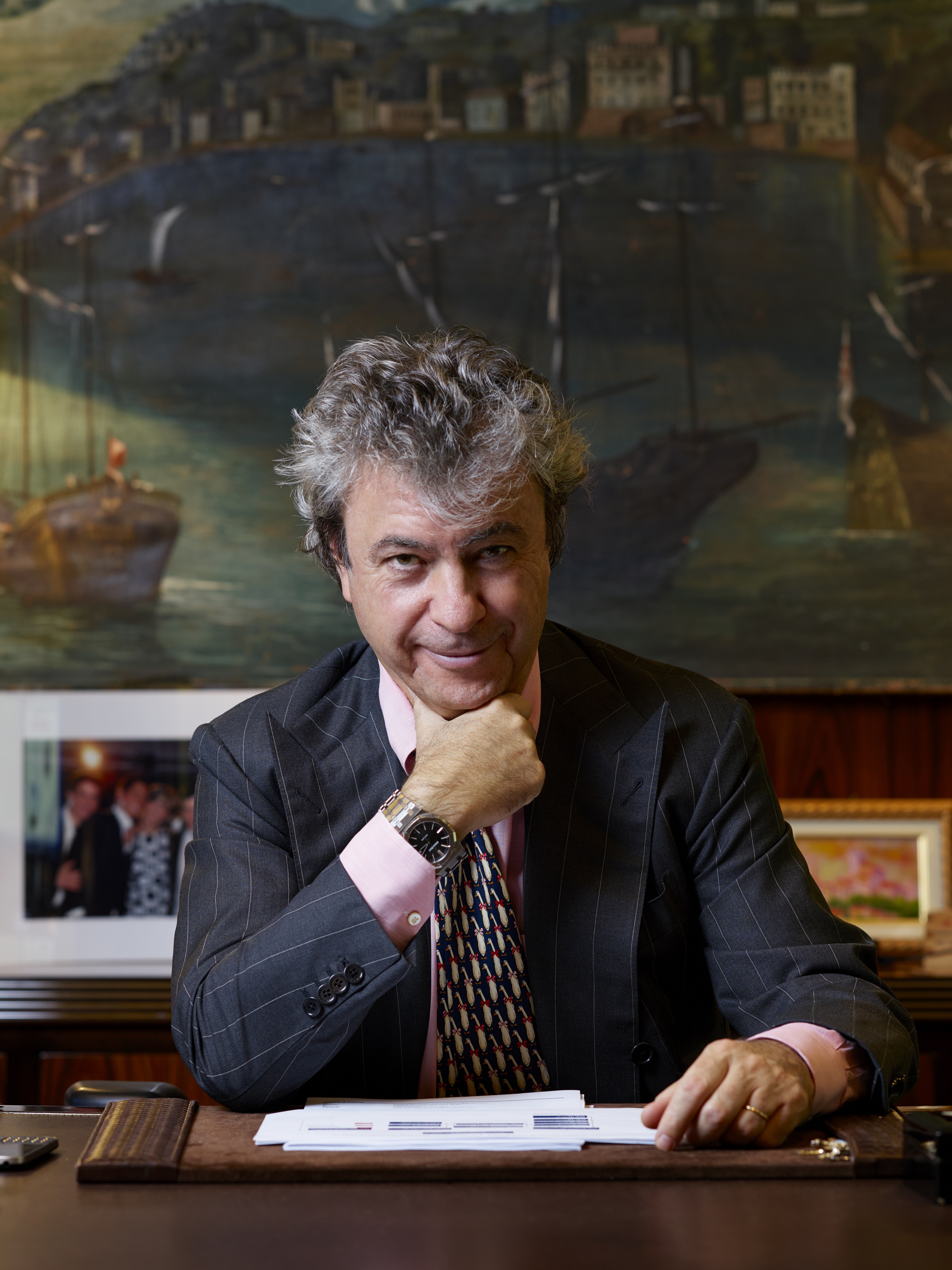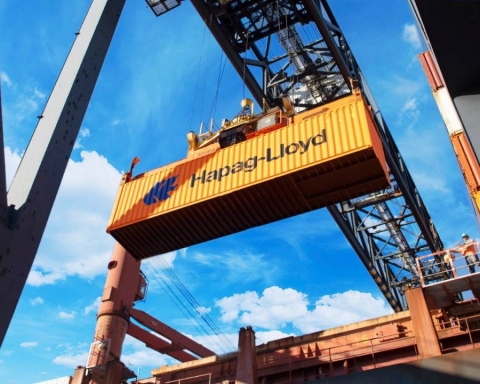“The Pandemic has disrupted habits and consumption trends, but it has also taught us some lessons we have to take into account.” With his eyes on the future and his feet firmly rooted in the past, in the history of one of Italy’s most important shipowner companies, Cesare d’Amico does not flinch when it comes to giving his opinion on current issues of general interest.
“We have certainly understood how far, too far, the unregulated relocation of manufacturing activities, which later turned out to be strategic, has gone towards markets considered more convenient,” says the CEO of d’Amico Società di Navigazione Spa, the Group’s shipowner holding company.
“We have realized that from a logistical point of view, commercial logics based on hyper-production, zero stock and just-in-time are not always the right answer to the needs of a market increasingly put under pressure by adverse events. Because negative macroeconomic cycles and black swans are always just around the corner”.
According to Mr. d’Amico “Covid has certainly brought out the darker side of globalization and has upset a logistic model, the on-time delivery one, that up to now has worked like a Swiss watch, thanks, above all, to the numerous investments by the great shipowner companies over the years, especially those operating in the container transport sector”.
In short, “the pandemic emergency has highlighted how important it now is for European countries to return to redefine their production activities with different parameters from those of the past”. The challenge of the future? “To depend less on the Silk Road and to balance the growing influence of Asian countries by relocating manufacturing at regional level”.
Shortening logistic chains that have become too long, and therefore too inflexible, is, for the Group’s CEO, one of the answers to give to those who have been asking for some time now for the congestion problems from which various European and non-European ports have been suffering from over the last few months to be solved: “Certainly – the manager points out -, the Container Excess Dwell Fee is not only not a solution, but risks being counterproductive.”
The anti-congestion fee introduced in the ports of Los Angeles and Long Beach and charged to carriers for import containers that stay too long in port terminals, is according to d’Amico, “anti-democratic, a punitive act that should not exist”.
If it is true that many operators in the supply chain risk being sidelined by the distortions of a competition that is clearly altered by phenomena that are not always manageable, it is also true, however, that individual governments have the possibility of putting the right controls in place to defend the interests of the community.
As far as Italy is concerned, “I can only confirm what has been said elsewhere: the Draghi government is certainly to be credited with having restored the country to a position of co-leadership at European and international level. Unfortunately, I can’t help but notice that the level of attention paid to the maritime industry in the past has not always been, and indeed still is, adequate”.
D’Amico stresses the necessity of a Ministry of the Sea responsible for tackling the many challenges the sector is facing: “All the major European countries – he says – have such a ministry. If we want to defend our interests, we have to have a government structure with specific competences on logistics, transport and ports. The Ministry of Infrastructures and Sustainable Mobility has, in fact, areas of intervention that are too vast to be able to fully deal with our sector”.
There are many issues that need to be addressed. Cyber security is one of them. The issue of environmental sustainability is fundamental too. “There is a renewed attention towards combating pollution and this is a good thing. Less encouraging is the European Union’s attempt to impose overly restrictive rules that, if applied to the market, would only risk creating undue distortions.”
He is referring to the Fit for 55 programme and the EU proposal to discourage the use of fossil fuels through fiscal measures, such as the extension of the EU Emission Trading System (EU-ETS) to maritime transport and the introduction, from 2023, of a tax to be applied to all fuels sold in the European Economic Area, with the option for Member States to extend it to international travel.
From this point of view, the Group’s top manager makes no secret of sharing what was recently declared by the president of Assarmatori, (the Italian shipowners’ association) Stefano Messina. “These measures can be easily circumvented by international shipping and risk only damaging the national economy,” says d’Amico, who adds: “For example, a ship coming from the Far East need only unload its cargo in North Africa to avoid its carbon credit being counted. The consequence is that the large container ships from 20,000 TEUs upwards that currently call at our ports may no longer do so after the introduction of this tax. The IMO has to deal with this, internationally and globally.”
During the interview, the CEO of d’Amico Società di Navigazione Spa also focused on the market trend in two key sectors for the group: dry bulk and refined products.
As regards dry bulk, the certainty is that after months of spiraling upwards, the Baltic Dry Index has started to slow down due to the steady decline in demand. The index devised by the Baltic Exchange, which summarizes the time charter rates of four categories of bulk carriers (Capesize, Panamax, Supramax and Handysize), was down 168 points last Tuesday, or 6.1% of the total, hitting its lowest level since the beginning of June.
However, the lower profit margins do not worry the manager, who has also been CEO of the Dry Cargo business unit since last April, specializing in the transport of dry cargo: “What we are witnessing is a slowdown that appears physiological and that does not raise any concern about the sector’s growth prospects. Let’s not forget that 2021 as a whole turned out to be an extremely positive year, characterized by freight rates decidedly above average, helped by the strong demand from the Far East”.
D’Amico does not see any signs on the horizon to suggest the possibility of a real reversal in the trend recorded in the year that is about to end: “In 2022, profit margins will still be above average, even if not at the levels of 2021. While remaining volatile, the market will tend to settle less abruptly than we have seen so far.”
The Italian manager was keen to stress how the Group’s Dry Cargo division currently operates a fleet of approximately 50 ships, consisting of ten Handymax (until 40.000 tons); twenty Ultramax (58-64 thousand tonnes), twenty Post Panamax/ Kamsarmax (82/87 thousand tonnes) and two mini Capesize (from 116.000 tonnes). “This year, we have decommissioned the last three ships built in 2012, which were not exactly environmentally sustainable. The fleet, completely renewed, with vessels built after 2014, allows us to look to the future with a certain peace of mind, even in view of the possible implementation of decarbonization rules.”
In the product tanker sector, too, Mr. d’Amico expects to see signs of improvement as early as the end of 2021. “So far this year, the market has experienced a sharp downturn due to the escalation of the pandemic emergency and the rebalancing of stocks. Freight rates, which were around $14,000 per day at the beginning of 2021, continually declined over the months until they fell below $10,000 in the third quarter.”
However, the scenario may soon change. Global economic growth, rising vaccination rates, increasing levels of mobility and the relaxation of social distancing measures are stimulating demand for oil: “From the second quarter of 2022 onwards, the market should tend to stabilize with higher rates,” Mr. d’Amico concludes.
Translation by Giles Foster




